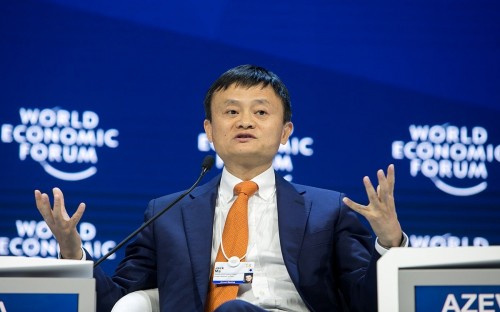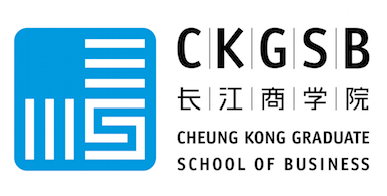The nation has overseen exponential growth since the turn of the century. The scale of growth that has moved China into the upper echelons of the world’s economic chambers continues to hover around the 7% mark.
Indeed, according to China’s National Bureau of Statistics, in the first half of 2018 GDP sat at 41, 896 billion yuan—a year-on-year increase of 6.8%.
Opportunities to work with China should be on the radar of all western executives, as the country’s domestic growth equates to global expansion.
That’s part of the reason Cheung Kong Graduate School of Business is launching a China CEO program at the end of October this year. The six-day program is an intensive immersion into China, designed to help today’s business leaders obtain China-specific knowledge to enhance their career and business prospects.
“China CEO is [designed] to empower today’s business leaders in shaping their successful business with China and the rest of the world,” says Bo Ji, program director and assistant dean of global executive education at CKGSB, “through in-depth China-specific knowledge, impactful business strategies, and an influential trusted network of Chinese business leaders.”
The program takes participants to all of China’s key business hubs. Two days in Beijing and a company visit to Baidu are followed by one day in Shanghai—with a keen focus on the Chinese government’s Belt and Road Initiative, an economic and diplomatic scheme to link China to Central and South-East Asia, and onwards to Europe.
Then, it’s on to Hangzhou for one day, where students are taken on a company tour of Alibaba—founded by Cheung Kong Graduate School of Business (CKGSB) alum, Jack Ma. The tech trips continue in the final destination—Shenzen, China’s Silicon Valley—where students are taught how to turn on a dime and adapt to the crazy world of tech, with a trip to Tencent.
Domestically, entrepreneurship is thriving in China. Of the 258 Unicorns—private companies valued at over $1 billion—globally, 164 reside in China. They join companies like Alibaba, Tencent, and Baidu who, when combined with the FAANGs of the western world—Facebook, Apple, Amazon, Netflix, & Google—account for over $4 trillion of market capital, according to The Economist.
China’s BATs mimic a global trend: pockets of Chinese influence emerging around the globe.
The strategy of China’s big tech firms is to buy up influence in the form of shares, or by buying companies outright. Tencent has done the same, investing in ride-hailing, online education, music-streaming, healthcare, IT, and e-commerce.
Exposure to the way these companies work internally can be hard to come by. Nonetheless, knowledge of the Chinese market and the key players within it is key for western executives who wish to open up business opportunities with China.
The Cheung Kong Graduate School of Business China CEO program will give western executives China-specific knowledge and exclusive access to China’s biggest technology companies, but alongside company visits are lectures on Managing Human Capital, and Cross-Cultural Management in a Chinese context.
Those skills will be needed for executives to optimize the potential of foreign investment in the Belt and Road Initiative in its coming stages. The scheme may be China led, but to maximize potential, FDI will be vital.
The Cheung Kong Graduate School of Business CEO program offers executives the opportunity to gain China-specific knowledge from the school’s world-class faculty; Engage and be part of China’s influential and trusted global leadership community; and Optimize the opportunities to connect with the right partner of investor, which could lead to a direct impact on your business success with China.
With governments actively seeking a role in the Belt and Road Initiative—which will span 65 countries—and banks like HSBC, Citigroup, and Standard Chartered battling to finance projects, now is the time, it seems, to jump on the Chinese economic behemoth bandwagon.








